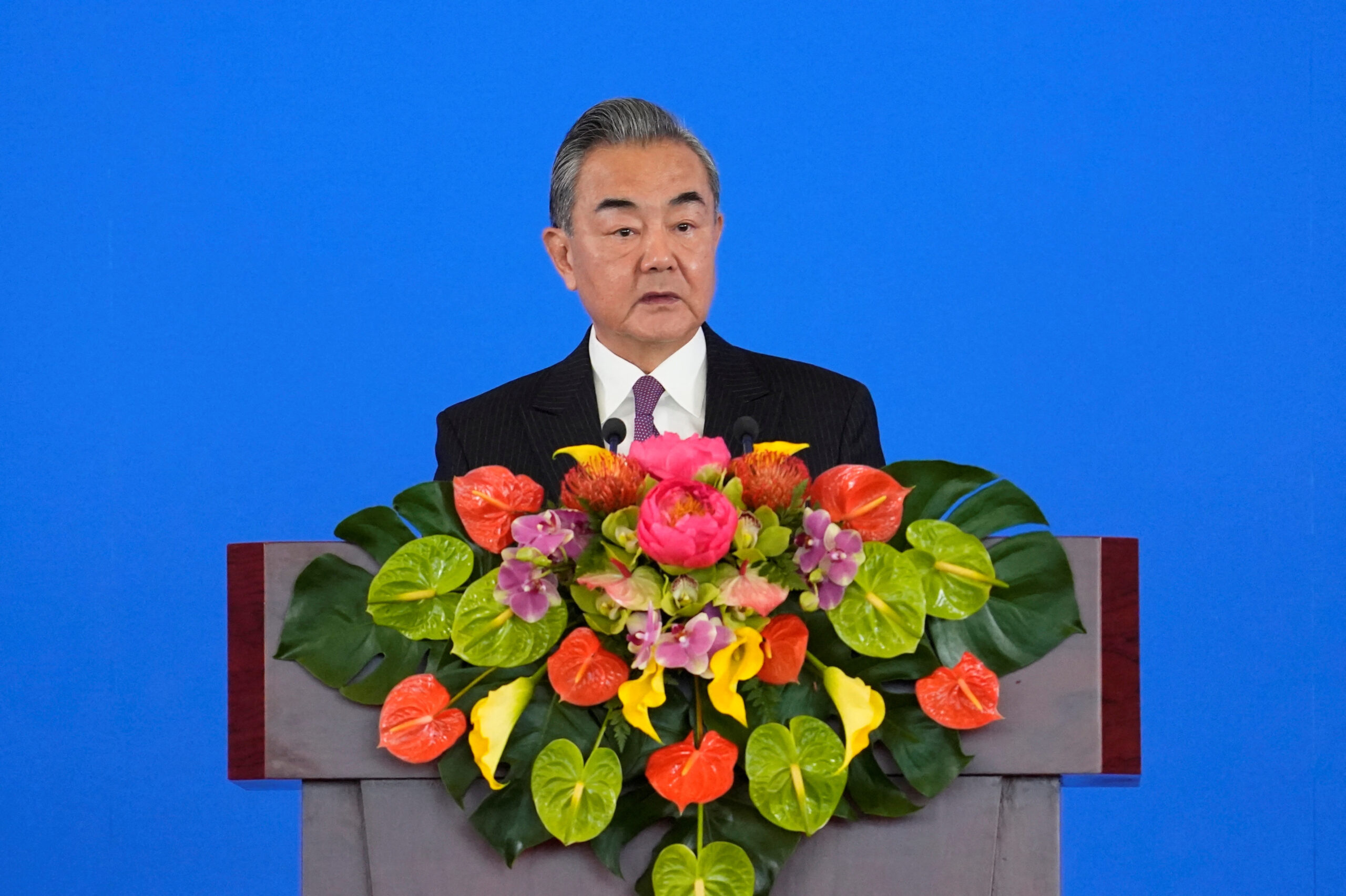China hosts separate phone calls with Israel and Palestine
Foreign Minister Wang Yi reiterated China’s calls for a cease-fire and a “two-state solution” during separate talks with his Israeli and Palestinian counterparts.

China’s top diplomat Wáng Yì 王毅 spoke to counterparts from Palestine and Israel yesterday, in which he reiterated calls for a cease-fire and a “two-state solution” to resolve the ongoing war between Israel and the Palestinian militant group Hamas. It is the highest-level communication with both sides that China has made public since Hamas launched its first attack on October 7.
“China is deeply concerned about the continued escalation of the conflict and the worsening situation, and deeply saddened by the large number of civilian casualties caused by the conflict,” Wang said in a phone call with Israeli counterpart Eli Cohen (in English from Chinese state media Xinhua, in Chinese from the Chinese Foreign Ministry).
“All countries have the right to self-defense, but they should respect the international humanitarian law and protect the safety of civilians,” Wang added.
Wang held a separate phone call with Palestinian Foreign Minister Riyad Al-Maliki on the same day, where Wang also expressed sympathy for the people in Gaza. “What the Gaza Strip needs most is efforts to end the war and promote peace, not geopolitical calculations,” Wang said. “What the people of Gaza need most is security, food and medicine, rather than war, weapons, and ammunition.”
“The only way to solve the Palestinian issue is to implement the two-state solution and realize the Palestinian people’s right to existence, right to statehood, and right to return,” he added.
More than 5,000 people have been killed in Israel’s bombardment of Gaza, with another 15,000 injured in just over two weeks since the Israel-Hamas war broke out, according to Palestinian health officials. The ministry also warned of the war’s impact on health infrastructure in the Gaza Strip, stating that 10 of the 35 hospitals are currently nonfunctional and the remaining ones are operating at 150% capacity.
The war began after Hamas militants attacked southern Israel, killing more than 1,400 people, and taking more than 200 hostages.
China’s calls for a ceasefire
On October 20, Chinese leader Xí Jìnpíng 习近平 made his first public comments on the war, where he repeated Beijing’s calls for an immediate cease-fire and a “two-state solution” that allows for an independent Palestinian state, describing it as the fundamental way out of the conflict. But China to date has neither condemned the October 7 Hamas attacks on Israel, nor has it even mentioned the group by name.
Both Xi and Russian President Vladimir Putin have made a point of diverging from the Western-led support for Israel after the attacks. “China and Russia have the same position on the Palestine question, and China is ready to maintain communication and coordination with Russia to promote de-escalation of the situation,” Zhái Jùn 翟隽, Beijing’s special envoy to the Middle East, said on October 20.
Since the Hamas attack, Israel has responded with air strikes on Gaza that have killed thousands. On October 15, Wang stated that Israel’s actions have “gone beyond the scope of self-defense” and called for a stop to its “group punishment” of the people in Gaza. Concern has also grown among foreign governments that the conflict may spillover to surrounding regions, while fierce protests have erupted and drawn stark divisions all over the world.
Calls for a ceasefire have repeatedly failed to pass at the U.N. Security Council, most recently after the U.S. vetoed a resolution that would have called for “humanitarian pauses” to deliver aid to Gaza, stating that the draft “did not mention Israel’s right of self-defense.” The war will likely be broached again when Wang pays a visit to the U.S. later this week to meet with U.S. Secretary of State Antony Blinken and National Security Advisor Jake Sullivan.
Meanwhile, Zhai has embarked on a flurry of diplomacy in the region in a bid to de-escalate the conflict and promote peace talks between Israel and Hamas. It is unclear if he will visit Israel, as Beijing has not made his itinerary to “relevant countries” public.
In China’s tightly-controlled mediascape, the conflict has split views on popular social media platform Weibo. While a number of posts are both sympathetic and critical of Israel, there has also been a rise in more extreme and antisemitic views — which China’s powerful censorship apparatus have allowed to proliferate.






